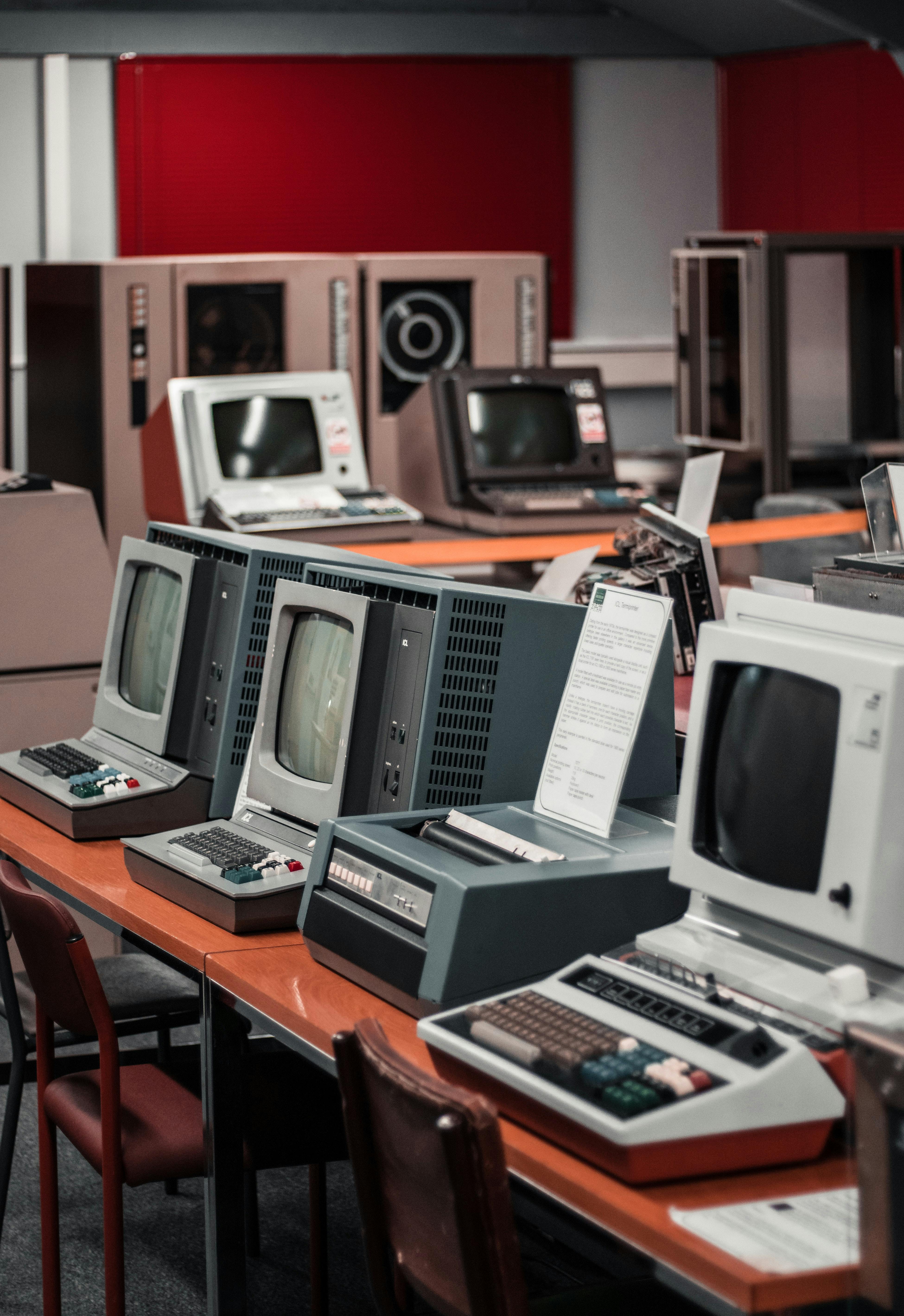The Incredible World of Quantum Mechanics
How it is Used in Modern Quantum Computing
Table of contents
- Quantum Mechanics: Fundamental Concepts
- Quantum Mechanics: Other Important Concepts
- Quantum Mechanics: How It is Used in Quantum Computing
- Quantum Computing: Fundamentals
- Quantum Computing: How it Works
- Classical vs Quantum Computing: Side by Side Comparison
- Limitations
- Quantum Mechanics: What It Is & How We Use It Today
Quantum mechanics is a field of quantum physics that studies the behavior and interactions between atoms and molecules. It's an incredibly complex topic, but it can be broken down into some basic concepts. The idea behind quantum mechanics is that even though we cannot see or touch them, there are tiny particles all around us! These particles behave in strange ways that break from our everyday experience with matter. Quantum computing is a relatively new way to use these particle waves to do calculations much more quickly than traditional computers can do today. In this post, I'll introduce the most basic concepts of quantum mechanics and explain why it's important for understanding quantum computing!

Quantum Mechanics: Fundamental Concepts
In classical physics, everything has a definite position at any given time based on the laws of physics. If you know the position and velocity of all the particles in a system, you can predict its future behavior. But quantum mechanics turns this idea on its head! In quantum mechanics, particles don't have definite positions until they are observed. This is called the Heisenberg Uncertainty Principle. The most famous example of the Heisenberg Uncertainty Principle is called Schrodinger's Cat. In quantum physics, a box contains either a cat or radioactive material that will release poison gas if it decays during the experiment. The question of whether or not there is a live cat in this particular box can only be answered by opening the box to see! This isn't because we don't know the position and velocity of all the particles of the cat, it's just how things work at this level. Scientists like Erwin Schrodinger came up with thought experiments to explain quantum mechanics concepts without having to actually do them (because they are really hard!).
Quantum Mechanics: Other Important Concepts
There are many other strange concepts in quantum mechanics, but two of the most important are superposition and entanglement. A particle can exist in multiple positions at once due to the Heisenberg Uncertainty Principle! For example, an atom could be spinning clockwise and counterclockwise simultaneously until it is observed. This phenomenon allows for incredible computing power that traditional computers just cannot do today. There have been some experiments done with quantum teleportation - a way to send information instantaneously across vast distances while observing a particle's position or momentum (which would destroy any messages being sent). Quantum teleportation has not yet been achieved on macroscopic levels due to how hard it is to observe these particles without disturbing them, but the theory is sound!
Quantum Mechanics: How It is Used in Quantum Computing
One of the most important implications of quantum mechanics is that particles can exist in more than one state at the same time. This is called a superposition. In traditional computing, each bit is either a 0 or a 1. But in quantum computing, each qubit (quantum bit) can be both a 0 and a 1 at the same time! This opens up all sorts of possibilities for calculations that are much faster than classical computers can do today. To take advantage of this fact, quantum computers use something called Shor's Algorithm to factor large numbers quickly. Traditional computers would take years to break down large numbers into their prime factors, but quantum computers can do it almost instantly! There are other algorithms that also work better on quantum computers, but this is the one that everyone knows about because it was proposed by Peter Shor of Bell Labs in 1994.
Quantum Computing: Fundamentals
Quantum computing should not be confused with regular old classical computer programming! Quantum physicists use different computational algorithms based on quantum mechanics to take advantage of how particles work at the smallest levels. There are other forms of computation like molecular and DNA computing - but these aren't as well known or used often today (mainly due to their difficult nature). We won't go into any more detail about how they work here, but you can read up on them if you want! There are two main types of quantum computers called gate model QC's and adiabatic QC's. Gate model quantum computers are the more popular type and work by taking a set of qubits in one state, applying a series of mathematical transformations (called gates) to them, and then measuring the output. This process is repeated until you get the result that you want. Adiabatic QC's are similar, but they use lasers instead of gates to change the state of the qubits. They are not as well developed yet, but they could be more stable in the future!

Quantum Computing: How it Works
Now that we know some basics about quantum mechanics and how it is used in quantum computing, let's take a look at how quantum computers actually work! In order for traditional computers to do calculations, they need data to be saved in a binary format called bits. Bits can be either 0 or l and are the fundamental pieces of data that allow your computer to do anything at all! Quantum computers, however, use quantum bits (called qubits) which have more complex properties than regular old bits. A single qubit can exist as both zero and one simultaneously - but collapses into just a zero or just a 1 when observed! This means that instead of having only two states like normal computers, quantum computers have an infinite number of possible combinations for storing information. In order words, they have superpowers compared to traditional computing devices :) That's not even the coolest part though…because particles also behave differently under observation from how they normally do on their own accord, quantum computers can process information without disrupting it. This is called superposition, and means that the qubits are able to work together on a calculation even while they are not being observed!
Classical vs Quantum Computing: Side by Side Comparison
In order to help you understand more about how quantum computing works compared to traditional computer programming, here are two examples! Both represent everyday problems and compare how long they would take on classical or quantum devices. The results are pretty impressive :)
Problem 1: Search for a specific word in a text document
Classical Time: 60 seconds
Quantum Computing Time: 0.000000000000001 seconds
Problem 2: Find the prime factors of a large number (100 digits)
Classical Time: 66 years
Quantum Computing Time: 0.000000000000000001 second
Problem 3: Find the prime factors of a large number (100 digits)
Classical Time: 31,500 years
Quantum Computing Time: 35 minutes and 20 seconds
As you can see, quantum computers are way faster at solving problems than traditional computers! This is because they take advantage of the strange but amazing world of quantum mechanics to do multiple calculations at once. Even though they are still new and not as well developed as classical devices, quantum computing has huge potential for the future! Stay tuned for more updates :)
Limitations
There are some limitations to quantum computing that still need to be addressed before the technology is ready for use by everyday people. First, qubits themselves can only maintain their special properties if they are super cold - which means that most of them have to operate at less than 0 degrees Celsius! This makes it really difficult to build a large enough computer with these parts because you would need hundreds or thousands of refrigerators all over your house just so everything could work together :) Another problem is reliability - quantum computers aren't completely reliable yet and will sometimes give incorrect results due to errors in calculations. Scientists are working on this though, meaning that once things like error correction software become better developed this shouldn't be an issue anymore. Quantum Computing is the Future! Despite these limitations, quantum computing is still a rapidly developing technology with tons of potential. In fact, some people are saying that it could eventually take over traditional computing altogether! Just think about how your life would be different if you had a quantum computer instead of a regular one - you could do your schoolwork in seconds, find information online instantly, and never have to worry about storage space again because everything could be saved in the cloud!
Quantum Mechanics: What It Is & How We Use It Today
The most important thing to take away from this article is that quantum mechanics deals with very small particles of matter (like atoms or photons) at their tiniest levels - and how their behavior doesn't always make sense when you apply traditional concepts like "cause and effect" to them. Quantum effects have been seen in larger things too though, so don't think it's just some nerdy physics concept that only scientists care about! For instance, optical lenses use quantum tunneling where light can pass through a small opening because the particles don't have to go in a straight line. We use quantum mechanics every day without realizing it! For example, lasers wouldn't work without quantum mechanics (the photons would just keep going off in random directions if they weren't for the laws of quantum mechanics). GPS systems also rely on special relativity and quantum mechanics to calculate your location. So as you can see, this branch of physics is pretty important :) That's all for today's article! I hope you learned something new and interesting about quantum mechanics and how it is used in modern quantum computing. Be sure to check out some of the other articles on our website for more information, or leave us a comment if you have any questions!

